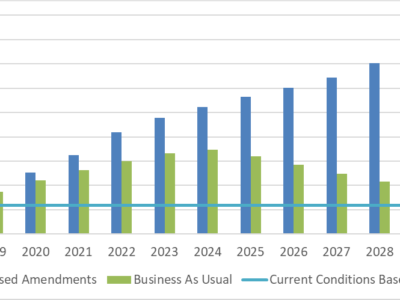petroleum
U.S. Supreme Court Declines to Revive Challenge to Oregon Clean Fuels Program
Legal Challenges to Oregon & California Vehicle Fuel Carbon-Intensity Standards Close to the End of the Line, Clearing Path Forward to Transformative Reductions in Greenhouse Gas Emissions from Transportation Sector
In this post, we continue our discussion of California’s Low-Carbon Fuel Standard (LCFS), which we introduced in our post on October 4, 2018. This is third in that series. This past Monday, the U.S. Supreme Court denied review of a federal appeals court decision upholding the legality of Oregon’s Clean Fuels Program. That decision finally frees …
Continue reading “U.S. Supreme Court Declines to Revive Challenge to Oregon Clean Fuels Program”
CONTINUE READINGGuest Bloggers Deborah Gordon and Frances Reuland: Is California Extraordinary? Its Oil Resources Certainly Are
Facts About California’s Oil and Greenhouse Gas Emissions
Despite ongoing federal rollbacks to environmental regulations, California has the right to set its own clean air standards because it is truly extraordinary. Truth be told, the compelling circumstances that first set in motion California’s vehicle emissions standards remain entirely valid. And there are four recent conditions, related to California’s oil supply, production, and refining, …
CONTINUE READINGMajor Policy Attacks on California’s Low Carbon Fuel Standard and Why They’re Off-Target
Second in a Series About California’s Low Carbon Fuel Standard Program
[Post co-authored by Ted Parson and Sean Hecht] In this post, we continue our discussion of California’s Low-Carbon Fuel Standard (LCFS), which we introduced in our post on October 4, 2018. Because it’s a prominent and ambitious policy that will reduce California’s reliance on petroleum-based transport fuels, it is unsurprising the Low-Carbon Fuel Standard has …
CONTINUE READINGCalifornia Raises Its Ambition for a Low-Carbon Fuel Future
First in a Series About California’s Low Carbon Fuel Standard Program
[Post co-authored by Sean Hecht and Ted Parson] California’s Air Resources Board (CARB) has just enacted new regulations that strengthen the state’s Low Carbon Fuel Standard (LCFS). The LCFS is a major component of California’s greenhouse-gas control strategy, but receives surprisingly little attention, compared to other policies like the statewide cap-and-trade system and the renewable …
Continue reading “California Raises Its Ambition for a Low-Carbon Fuel Future”
CONTINUE READINGHow Did Alaska Avoid the Resource Curse? Can Anyone Else Do So?
Dan made a useful point the other day about the possibility that increased energy production could yield a resource curse, i.e. an increase in unproductive and oligarchical rent-seeking when an economy becomes based upon resource extraction. One might add that this rent-seeking also tends to underdevelop a country’s human capital, as it has in Saudi …
Continue reading “How Did Alaska Avoid the Resource Curse? Can Anyone Else Do So?”
CONTINUE READINGBut Will You Love My Energy Source in the Morning?
In the wake of cataclysmic energy disasters occurring on opposite sides of the globe, some interesting regional and national reflections are currently underway that may–or may not–alter long-term energy futures in the U.S. and abroad. One development this week that drew surprisingly little public attention is that no less a personage than the Prime Minister of …
Continue reading “But Will You Love My Energy Source in the Morning?”
CONTINUE READINGWhat a Waste of Energy
The Lawrence Livermore National Laboratory has issued its annual snapshot of our national energy use, based on data collected by the Department of Energy’s Energy Information Agency. The good news is that we used less energy in 2009 than we did in 2008 (almost all of the savings probably attributable to the still-weak economy). The …
Continue reading “What a Waste of Energy”
CONTINUE READINGFuture Oil Prices
The Energy Information Agency at DOE has some really interesting projections of future oil use and prices. According to the EIA, in their baseline scenario, “the price of light sweet crude oil in the United States (in real 2007 dollars) rises from $61 per barrel in 2009 to $110 per barrel in 2015 and $130 …
Continue reading “Future Oil Prices”
CONTINUE READING




